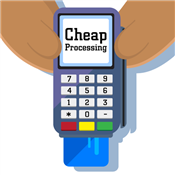How to Avoid Credit Card Processing Fees
Are your credit card processing fees too high? Here are 8 things you can do to lower your processing fees so you keep more in your pocket.
 |
Accepting credit cards is important for the growth of any business. But, credit card processing fees can eat into a good portion of your profits. For small business owners, every cent is important.
You can't avoid credit card processing fees (sorry), but there are ways to save on them. Read on for 8 practical tips that can help you save hundreds a month.
- Get the Right Plan for Your Business
- Cut Down on Credit Card Fraud
- Use an Address Verification System
- Avoid Manual Entry
- Negotiate with Your Processor
- Set a Credit Card Minimum Purchase
- Encourage Debit Card Payments
- Pass the Fee to Your Customers
1. Get the Right Plan for Your Business
The most important thing you can do to save money is to find the right provider for your business.
As your business grows, you may find that you've outgrown your current processing provider. Another one may offer a better pricing model with lower rates.
The first step is to understand the 3 main pricing models. We explain in more detail here, but we'll go over the basics below.
- Flat Rate (best for under $5k/mo)
Usually new businesses start out on this model (like Square or PayPal) because it's simple. You're charged one flat-rate processing fee for every transaction, no matter what type or brand of card. But this rate is on the high end. - Interchange-Plus (best for $5k - $15k/mo)
As your business grows, Interchange-Plus pricing can help you save a lot more. This is when the interchange fees and processor markups are separated. You pay different rates with different types of cards (instead of the same high rate). - Subscription (best for $15k+/mo)
If your business has grown really large, look into a subscription plan. You'll pay a monthly membership fee for the service, as well as a very tiny markup for each transaction.There's also a 4th model called tiered pricing, but we recommend you avoid that. It's the most confusing and least transparent one. If you're on this plan, change providers ASAP!
If you're past your tiny startup days, but are still on a pricey flat rate model, it's time for a change. The right model for you can make a huge difference in your processing costs.
2. Cut Down on Credit Card Fraud
Credit card fraud happens. And unfortunately, it's the businesses that take the hit.
Whenever a customer disputes a charge, you're slapped with a chargeback fee that can range from $15 - $50 (plus loss of the sale). One fraud dispute can easily cost your business twice the sales amount.
Plus, if you have a lot of fraud, you can be labelled a "high risk" merchant. Which means higher processing rates.
It's best to prevent fraud before it happens. Here are some things you can do:
- Verify your customer's identity with photo ID
- Use an address verification service (we'll explain more below)
- Ask for the CVV security code
- Encourage smartphone payments
- Maintain PCI compliance
There's another good reason to cut down on fraud. If you have fewer chargebacks, that gives you more leverage to negotiate lower fees. We'll talk more about that later.
3. Use an Address Verification System
An address verification system (AVS) verifies that the billing address entered matches the address on file on the cardholder account. If they don't match, then the transaction is declined.
Adding this tool to your checkout is one of the best ways to help detect fraud due to stolen credit cards.
There's another benefit too. If somehow a customer disputes the charge, proving that you had a full AVS match will be strong evidence in your favor.
4. Avoid Manual Entry
This is probably a familiar situation. You get a card that wouldn't swipe (or the chip doesn't read), so after a few tries, you manually enter the card information.
Manually keyed-in transactions have the highest processing rates. Because a lot of these are usually done card-not-present, there's higher risk of fraud.
If you're taking cards in person, avoid manual entry as much as possible. If the card won't swipe, ask if the customer has another payment method instead.
5. Negotiate with Your Processor
Did you know that you can negotiate fees? But you need to know which fees are open for discussion.
The interchange rates charged by the credit card networks are not negotiable. BUT you can negotiate anything the provider has control over. This includes:
- The processor's markup
- Annual or monthly fees
- Payment gateway / virtual terminal fee
- Equipment fee / set up costs
- PCI compliance fee
The key to negotiating is to be a valuable client. The more sales you have, the more negotiation power. If your business has grown from when you first signed up, it's a good time for a chat.
It's also important to have a good history. This means always making payments on time and having fewer chargebacks. By being a good client, the provider is more likely to work with you to cut down fees.
If you're unable to lower processing rates, cutting down other fees will still help you save. Even if you're a small company, don't be afraid to ask for waivers.
Say your per-transaction fee is Interchange + 0.2% + $0.10. If your business has:
- Small average ticket size - negotiate the fixed fee (ex: 0.2% + $0.05)
- Large average ticket size - negotiate the percentage markup (ex: 0.15% + $0.10)
6. Set a Credit Card Minimum Purchase
Tiny credit card purchases can really hurt a small business.
Say a customer wants to buy something for $2. If your average rate is 1.75% + $0.30 per transaction, that's $0.34 in processing fee on a simple $2 purchase.
If your margins are already tight, you could even lose money on tiny purchases like that.
You can avoid that by setting a minimum purchase amount for credit cards. This is legal by the Dodd-Frank Act, but there is some fine print:
- The credit card minimum purchase amount can be no more than $10.
- The minimum must apply to all cards. You can't say there's a $10 minimum for Amex, but nothing for Visa.
- You cannot set a minimum purchase on debit cards.
Adding this little policy can help you avoid paying fees on small tickets. But the next tip can have an even bigger impact on savings.
7. Encourage Debit Card Payments
Debit cards have much lower interchange fees because of the lower risk of fraud. The typical interchange rate for debit cards is just 0.5%, while credit cards are around 1.7% - 2%.
On a $20 purchase, a debit card will cost you just $0.10, compared to $0.40 for credit cards. That's a huge difference that will definitely add up.
Remember that it's illegal to set a debit card minimum. But you can encourage debit and cash payments by offering a discount.
If you're a small local shop with a loyal customer base, you can also explain to your customers that debit cards will help you stay in business. A lot of people would be happy to support their favorite stores.
8. Pass the Fee to Your Customers
Finally, if you REALLY want to avoid processing fees, there is one way to offset them. Though we don't fully recommend it. And it's not even legal in all states.
And that is to pass the fee to your customers as a credit card surcharge.
Free Credit Card Processing with Surcharging
- You keep 100% of every credit card sale: when you sell $100, you receive $100. Pay only for debit card transactions.
- Fully Compliant
- CardX passes on the fee for credit card transactions only. Your customers can always choose debit as a no-fee option.
California, Colorado, Connecticut, Florida, Kansas, Maine, Massachusetts, Oklahoma, Texas, and Utah
If this is something you want to consider, know these rules:
- Any surcharges must be clearly displayed at checkout.
- The surcharge cannot exceed the cost of the processing fee or 4% of the transaction, whichever is lower.
- A surcharge cannot be imposed on debit or prepaid debit card transactions.
But, though passing on the fees will help your bottom line, should you do it?
People hate extra fees, and it could turn them off to your business. Building loyalty and repeat customers is more important. Think about whether saving the few extra bucks is really worth it.
What Is the Average Credit Card Processing Fee?
The average credit card processing fees are 1.5% - 2.9% for swiped transactions and 3.5% for online transactions (due to the higher risk of fraud).
Here are the average credit card processing fees for the 4 major credit card networks:
- Visa: 1.4% - 2.5%
- Mastercard: 1.5% - 2.6%
- Discover: 1.55% - 2.5%
- American Express: 2.3% - 3.5%
The processing rates depend on many different factors. For example, swiped and chip cards have the lowest processing rates, while manually keyed-in transactions have the highest rates.
Debit cards with PIN have much lower rates than credit cards. And among credit cards, premium rewards cards and business cards carry the highest rates.
Bottom Line
Unfortunately, you cannot totally avoid credit card processing fees. They are a necessary cost of doing business. But hopefully we have given you some good tips on how to lower it.
The most important is to get yourself on the right pricing model for your business. Switching to Interchange-Plus (or Subscription for high volume businesses) can save you hundreds on processing fees a month.
Anna G is a research director at CreditDonkey, a credit card processing comparison and reviews website. Write to Anna G at feedback@creditdonkey.com. Follow us on Twitter and Facebook for our latest posts.
Note: This website is made possible through financial relationships with some of the products and services mentioned on this site. We may receive compensation if you shop through links in our content. You do not have to use our links, but you help support CreditDonkey if you do.
Not sure what is right for your business?
|
|
|
Answer a few short questions in our credit card processing quiz to receive tailored recommendations to help you keep more profits.
|
|
| ||||||
|
|
|

















